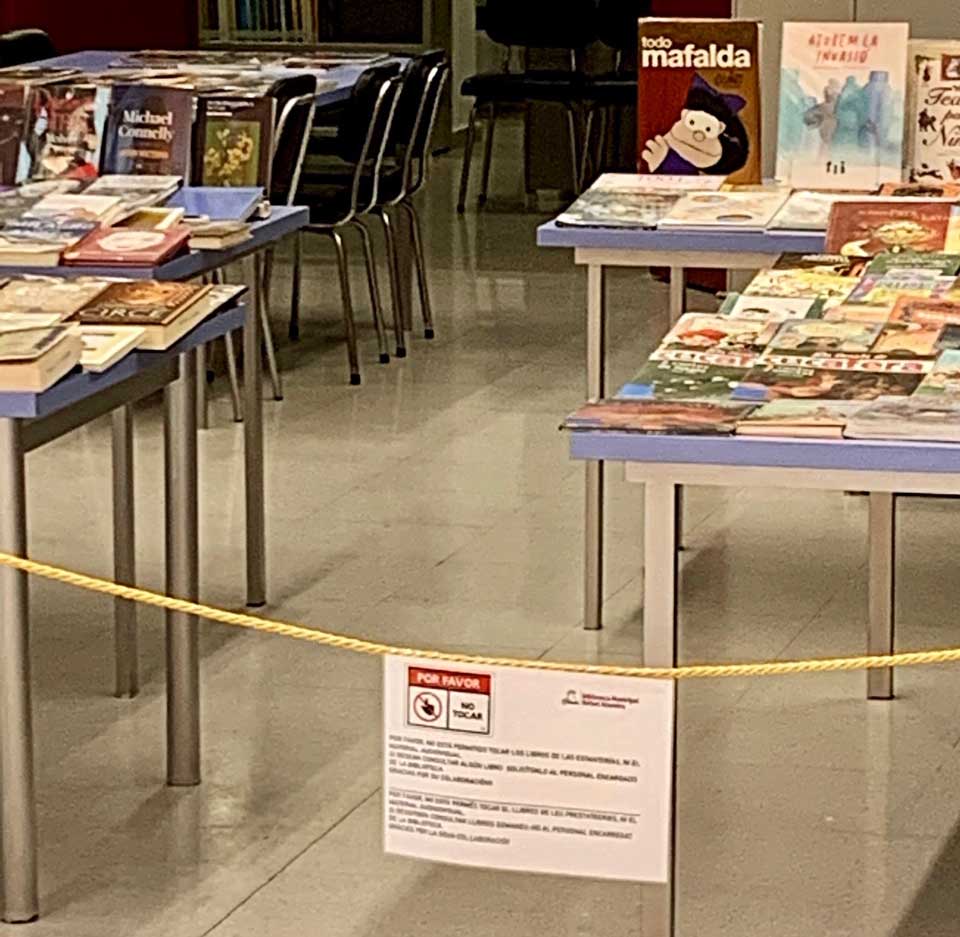´Click and collect´ seems to be the Coronavirus catchphrase of the moment in libraries, though Argos claim to have introduced the concept in the year 2000. But have you spotted a certain similarity between ‘click and collect’ and the ‘closed access’ model that all UK public library services once operated? Yes ok, Victorian and Edwardian librarians, thrilled by the 1870s innovation of library indicator boards such as that invented by Alfred Cotgreave, would have found the online ‘click’ part beyond their comprehension, but fetching the books from a closed stack while the users waited at the front desk would have been second nature to them. And indeed, they would have expected their clients to at least be able to then take the books into a large reading room and peruse them at their leisure. Sadly, the role of the public library as a neutral social space for all of the community, which we’ve all rightly promoted for so long, is the very aspect that many services are now struggling to restore.
As with just about everything in 2020, library services have been heavily impacted by Covid-19, and library managers who already thought they were juggling to keep an almost impossible number of balls in the air suddenly found that a giant medicine ball had been lobbed in from the side-lines. Libraries everywhere had to be closed down with almost no notice, but once this immediate task had been accomplished library staff up and down the country started to demonstrate their huge resourcefulness. As well as coming up with imaginative ways to maintain a level of service, many have grasped the opportunity to demonstrate their highly transferable skills, often surprising senior council managers. Check out Activist Group Media’s series of short videos on Libraries in Lockdown for just a few examples. Some of my colleagues at Activist have also been undertaking a research project on behalf of Libraries Connected examining the performance of public libraries during lockdown.
More recently, moving into the so-called (mis-named?) new normal … don’t bin those ‘Closing Libraries’ notes just yet! … the even bigger challenge has been how to reopen. It seems that every public library service in England has now managed to reopen at least some libraries in some format, though in many cases this is still restricted to ‘click and collect’. As an aside, I popped into the public library where I was this week in Spain: gel for hands at the door and a temperature check before you go in. They also are operating only a select and collect service, quarantining books and other materials on their return, along with access to the reading/study area by appointment only.

Libraries Connected has been active, producing a useful reopening toolkit (click here to view), which is well worth checking out if you haven’t already used it, though inevitably this can only give guidance and the difficult decisions are having to be made locally. And without offering any immediate answers, I’m going to voice the big questions that perhaps aren’t being asked out loud in more formal forums: how much support and encouragement are library service heads being given from ‘above’? Indeed are other directorates, often from my experience risk-averse, making reopening more difficult rather than helping? And are senior managers and perhaps politicians, undoubtedly under huge pressure from funding shortfalls, finding this a convenient opportunity to review the minimum level of service they need to offer? Perhaps this is unfair? Time will tell.
I believe that the last closed access public libraries in the UK had finally succumbed to progress by the late 1930s. Even I don’t go back that far (does anyone happen to know which was the last library to adopt ‘open access’?) but I do sometimes fondly recall the eccentrics who were in many cases still managing libraries at the very start of my career. Are we now those eccentrics? I hope not: I don’t believe there’s anyone to compare with the indomitable woman, formerly the (only) reference librarian of a tiny borough, who post-1965 amalgamation frequently greeted innocent enquirers’ questions with the retort, “Don’t you know that?!”
Geoff Allen is a senior associate consultant with Activist Group. The views expressed in this blog are his own and do not necessarily reflect the opinions of Activist.
